Recycling & Waste Management
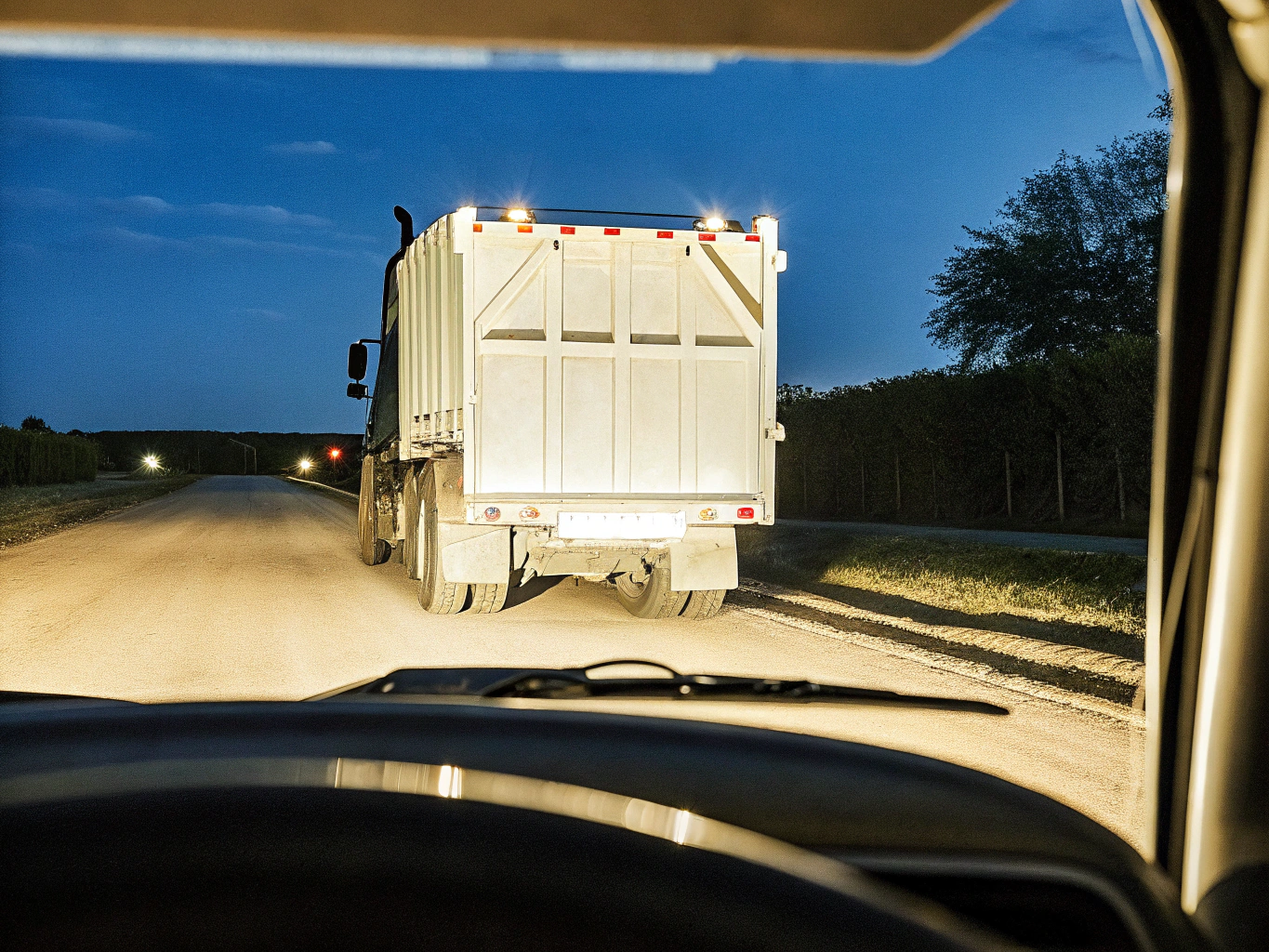
Trash receptacles and storage containers: reflective markings.
Requires reflective markings on large trash and storage containers placed on roadways for safety purposes. Mandates eight strips of fluorescent reflective tape on containers unless marked before January 2025. Allows yellow, red, or white reflective tape on truck-transported storage containers. Imposes fines up to $1,000 for containers not properly marked within 14 days of notice.
Trash receptacles and storage containers: reflective markings.

Requires reflective markings on large trash and storage containers placed on roadways for safety purposes. Mandates eight strips of fluorescent reflective tape on containers unless marked before January 2025. Allows yellow, red, or white reflective tape on truck-transported storage containers. Imposes fines up to $1,000 for containers not properly marked within 14 days of notice.

Product safety: consumer products: perfluoroalkyl and polyfluoroalkyl substances.
Bans the sale of seven common consumer products containing PFAS chemicals starting January 1, 2027. Authorizes regulators to ban additional product categories when safer alternatives are available at similar costs. Exempts medical devices, pesticides, and products containing essential fluoropolymers from the restrictions. Requires an 18-month transition period before new product bans can take effect.
Product safety: consumer products: perfluoroalkyl and polyfluoroalkyl substances.

Bans the sale of seven common consumer products containing PFAS chemicals starting January 1, 2027. Authorizes regulators to ban additional product categories when safer alternatives are available at similar costs. Exempts medical devices, pesticides, and products containing essential fluoropolymers from the restrictions. Requires an 18-month transition period before new product bans can take effect.

Recycling: organic byproducts.
Undeveloped "intent bill" that aims to promote recycling organic byproducts into livestock feed. Seeks to expand opportunities for converting organic waste materials into animal feed products.
Recycling: organic byproducts.

Undeveloped "intent bill" that aims to promote recycling organic byproducts into livestock feed. Seeks to expand opportunities for converting organic waste materials into animal feed products.

Hunting and sport fishing licenses: reduced fees.
Establishes reduced-fee hunting and fishing licenses for California residents receiving public assistance starting 2027. Requires applicants to provide documentation proving eligibility and no Fish and Game Code violations. Mandates a program evaluation report to the Legislature by October 2029 to assess participation and costs. Expires automatically on January 1, 2032 unless renewed by future legislation.
Hunting and sport fishing licenses: reduced fees.

Establishes reduced-fee hunting and fishing licenses for California residents receiving public assistance starting 2027. Requires applicants to provide documentation proving eligibility and no Fish and Game Code violations. Mandates a program evaluation report to the Legislature by October 2029 to assess participation and costs. Expires automatically on January 1, 2032 unless renewed by future legislation.

Environmental health: product safety: perfluoroalkyl and polyfluoroalkyl substances.
Prohibits sale of products with intentionally added PFAS starting 2028. Prohibits PFAS in cookware starting 2030. Enforces the restrictions through testing, penalties, and injunctions. Requires compliance certificates on request and may exempt firms from registration and fees.
Environmental health: product safety: perfluoroalkyl and polyfluoroalkyl substances.

Prohibits sale of products with intentionally added PFAS starting 2028. Prohibits PFAS in cookware starting 2030. Enforces the restrictions through testing, penalties, and injunctions. Requires compliance certificates on request and may exempt firms from registration and fees.

California Environmental Quality Act: environmental leadership development projects: streamlining.
Streamlines environmental review for large waterfront development projects in San Diego's port district. Requires the Coastal Commission to review development plans within 60 days of submission. Mandates final decisions on port master plan amendments within 90 days of receiving complete documentation. Authorizes the Coastal Commission to charge fees to developers for processing project applications.
California Environmental Quality Act: environmental leadership development projects: streamlining.

Streamlines environmental review for large waterfront development projects in San Diego's port district. Requires the Coastal Commission to review development plans within 60 days of submission. Mandates final decisions on port master plan amendments within 90 days of receiving complete documentation. Authorizes the Coastal Commission to charge fees to developers for processing project applications.

Beverage containers: recycling: redemption payment and refund value.
Reduces the recycling deposit on small wine and spirits containers from 25 cents to 10 cents starting January 2026. Requires stores to update container deposit labels by January 15, 2026. Maintains the 25-cent deposit for wine and spirits containers larger than 24 fluid ounces.
Beverage containers: recycling: redemption payment and refund value.

Reduces the recycling deposit on small wine and spirits containers from 25 cents to 10 cents starting January 2026. Requires stores to update container deposit labels by January 15, 2026. Maintains the 25-cent deposit for wine and spirits containers larger than 24 fluid ounces.

Used Mattress Recovery and Recycling Act: mattress recycling charge: consumer education.
Establishes a mandatory recycling fee on all mattress purchases in California. Allows retailers to pay recycling fees directly to recycling organizations on behalf of consumers. Requires sellers to educate consumers about mattress recycling and free disposal options. Mandates clear disclosure of recycling charges on sales receipts and documentation.
Used Mattress Recovery and Recycling Act: mattress recycling charge: consumer education.

Establishes a mandatory recycling fee on all mattress purchases in California. Allows retailers to pay recycling fees directly to recycling organizations on behalf of consumers. Requires sellers to educate consumers about mattress recycling and free disposal options. Mandates clear disclosure of recycling charges on sales receipts and documentation.

Hazardous waste: underground storage tanks.
Modernizes hazardous waste reporting by allowing electronic submissions to a statewide information system. Establishes a clear priority order for laboratory waste treatment procedures to enhance safety standards. Expands exemptions for tanks containing hydraulic or dielectric fluids used in mechanical systems. Requires facilities to follow strict notification and record-keeping protocols for hazardous waste treatment.
Hazardous waste: underground storage tanks.

Modernizes hazardous waste reporting by allowing electronic submissions to a statewide information system. Establishes a clear priority order for laboratory waste treatment procedures to enhance safety standards. Expands exemptions for tanks containing hydraulic or dielectric fluids used in mechanical systems. Requires facilities to follow strict notification and record-keeping protocols for hazardous waste treatment.

Personal opioid drug deactivation and disposal systems.
Establishes a statewide program to distribute opioid drug disposal systems to safely deactivate unused medications. Creates an online portal where residents can request free opioid disposal kits for home use. Prioritizes distribution of disposal systems to communities most impacted by the opioid crisis. Requires mailing of disposal kits with educational materials to high-risk households via USPS.
Personal opioid drug deactivation and disposal systems.

Establishes a statewide program to distribute opioid drug disposal systems to safely deactivate unused medications. Creates an online portal where residents can request free opioid disposal kits for home use. Prioritizes distribution of disposal systems to communities most impacted by the opioid crisis. Requires mailing of disposal kits with educational materials to high-risk households via USPS.
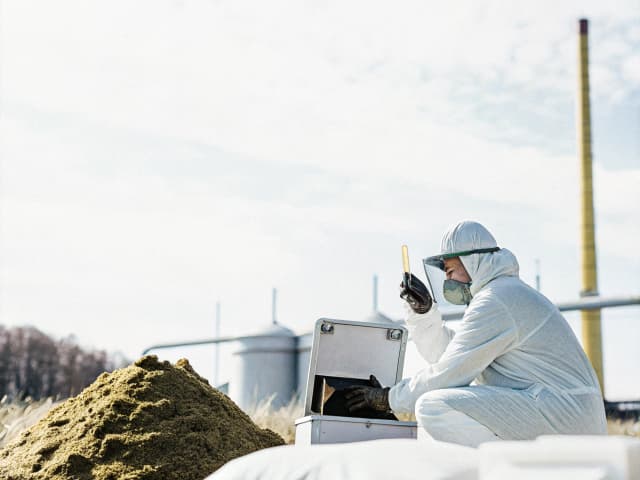
Metal shredding facilities: regulations.
Requires metal shredding facilities to reimburse local air districts for air quality monitoring costs. Mandates fence-line air quality monitoring at metal shredding facilities by January 2027. Establishes public notification requirements when air pollution exceeds safety thresholds. Requires facilities to take corrective actions if contamination levels exceed safety limits.
Metal shredding facilities: regulations.

Requires metal shredding facilities to reimburse local air districts for air quality monitoring costs. Mandates fence-line air quality monitoring at metal shredding facilities by January 2027. Establishes public notification requirements when air pollution exceeds safety thresholds. Requires facilities to take corrective actions if contamination levels exceed safety limits.
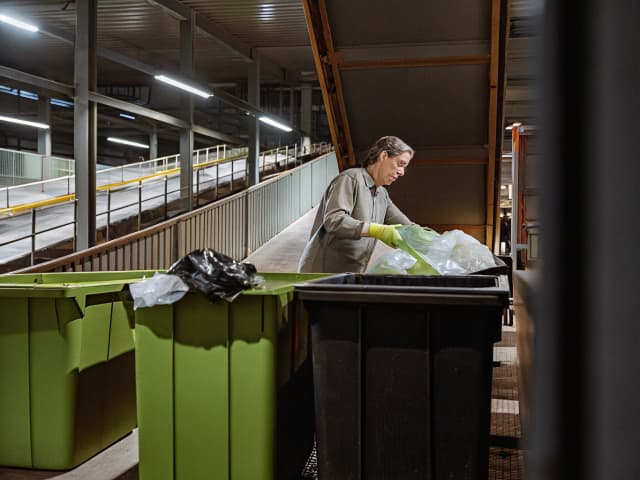
Plastic Pollution Prevention and Packaging Producer Responsibility Act.
Makes technical changes to existing plastic pollution prevention and producer responsibility requirements.
Plastic Pollution Prevention and Packaging Producer Responsibility Act.

Makes technical changes to existing plastic pollution prevention and producer responsibility requirements.

Paint product recovery program: paint recovery: education and outreach.
Expands California's paint recovery program to require manufacturers to collect and recycle leftover paint products. Mandates paint manufacturers to develop educational materials about proper paint handling and recycling. Requires paint manufacturers to invest in apprenticeship programs for training future painters. Establishes multilingual outreach efforts to ensure all California communities can participate in paint recycling.
Paint product recovery program: paint recovery: education and outreach.

Expands California's paint recovery program to require manufacturers to collect and recycle leftover paint products. Mandates paint manufacturers to develop educational materials about proper paint handling and recycling. Requires paint manufacturers to invest in apprenticeship programs for training future painters. Establishes multilingual outreach efforts to ensure all California communities can participate in paint recycling.
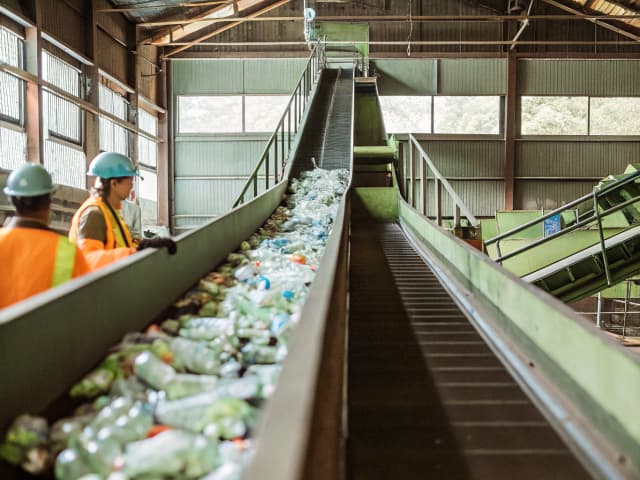
Recycling: beverage containers.
Establishes intent to promote in-state recycling of plastic beverage containers for local manufacturing. Recognizes the plastic reclaiming industry as essential for reducing waste and promoting sustainability. Aims to create jobs and economic growth through closed-loop recycling systems.
Recycling: beverage containers.

Establishes intent to promote in-state recycling of plastic beverage containers for local manufacturing. Recognizes the plastic reclaiming industry as essential for reducing waste and promoting sustainability. Aims to create jobs and economic growth through closed-loop recycling systems.
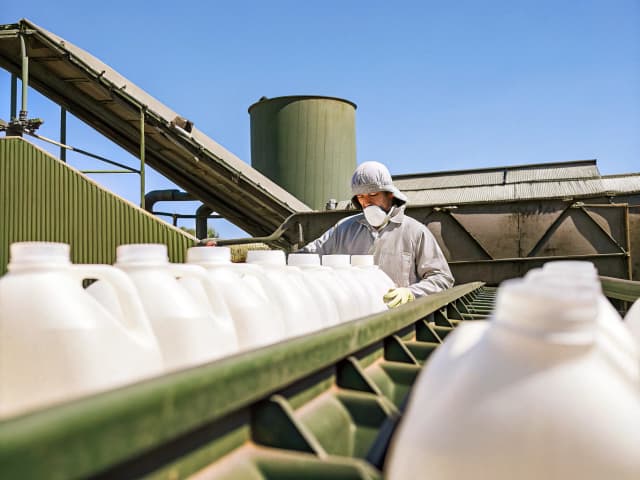
Beverage containers: recycling.
Requires beverage manufacturers to report imported recycled plastic content by country of origin starting March 2027. Mandates third-party validation of recycled plastic content in beverage containers. Protects manufacturers by keeping detailed import data confidential while publishing only aggregated totals. Maintains annual reporting requirements for plastic reclaimers and recycled plastic manufacturers.
Beverage containers: recycling.

Requires beverage manufacturers to report imported recycled plastic content by country of origin starting March 2027. Mandates third-party validation of recycled plastic content in beverage containers. Protects manufacturers by keeping detailed import data confidential while publishing only aggregated totals. Maintains annual reporting requirements for plastic reclaimers and recycled plastic manufacturers.

Water: waste discharge.
Expands state water quality protections to include non-navigable waters under the same standards as navigable waters. Requires state and regional water boards to monitor and regulate all water bodies through federal Clean Water Act processes. Establishes penalties up to $75,000 per day for violations of water quality requirements. Mandates annual inflation adjustments to civil penalties starting January 2026.
Water: waste discharge.

Expands state water quality protections to include non-navigable waters under the same standards as navigable waters. Requires state and regional water boards to monitor and regulate all water bodies through federal Clean Water Act processes. Establishes penalties up to $75,000 per day for violations of water quality requirements. Mandates annual inflation adjustments to civil penalties starting January 2026.
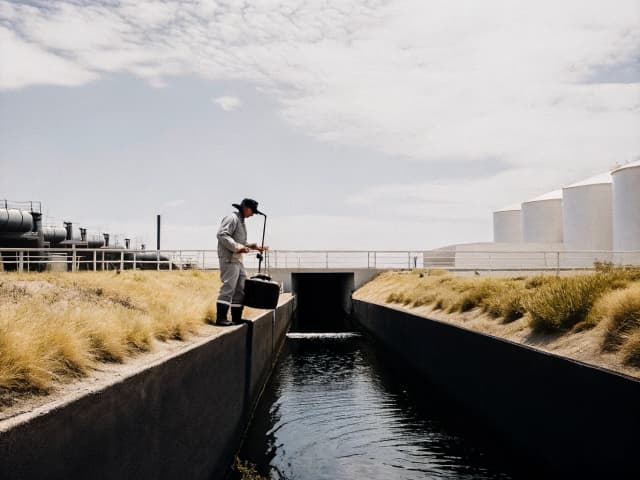
Waste discharge permits: landfills.
Requires environmental justice review before approving new landfill permits in California. Mandates county supervisors to hold public hearings on landfill impacts in disadvantaged communities. Requires evaluation of community health data when assessing new landfill locations. Prohibits landfill permits unless counties verify compliance with environmental justice standards.
Waste discharge permits: landfills.

Requires environmental justice review before approving new landfill permits in California. Mandates county supervisors to hold public hearings on landfill impacts in disadvantaged communities. Requires evaluation of community health data when assessing new landfill locations. Prohibits landfill permits unless counties verify compliance with environmental justice standards.
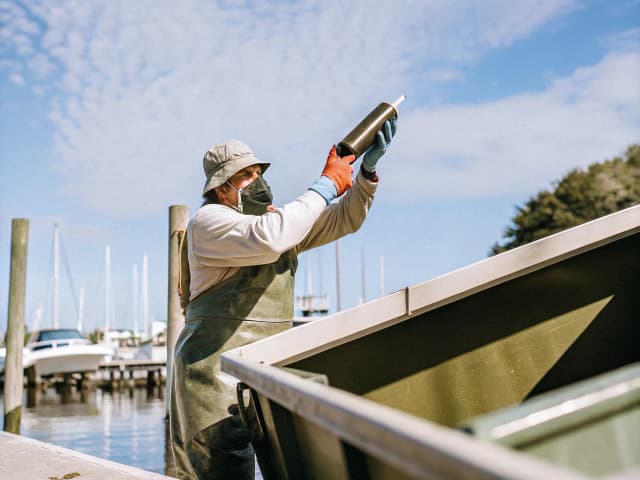
Hazardous waste: Emergency Distress Flare Safe Disposal Act.
Establishes a manufacturer-funded program for collecting and safely disposing of marine emergency distress flares. Requires manufacturers to submit disposal management plans to state regulators by January 2028. Prohibits the sale of marine flares containing perchlorate in California. Creates a Marine Flare Recovery Fund to cover state oversight and enforcement costs.
Hazardous waste: Emergency Distress Flare Safe Disposal Act.

Establishes a manufacturer-funded program for collecting and safely disposing of marine emergency distress flares. Requires manufacturers to submit disposal management plans to state regulators by January 2028. Prohibits the sale of marine flares containing perchlorate in California. Creates a Marine Flare Recovery Fund to cover state oversight and enforcement costs.
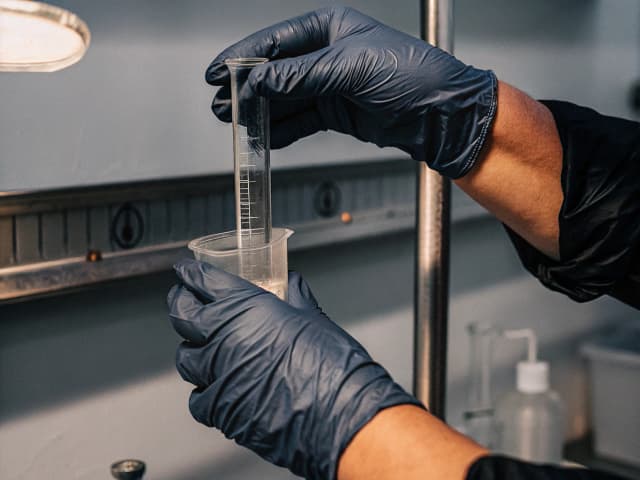
California Overdose Death and Addiction Reduction Act of 2025.
Establishes a state goal to reduce alcohol and drug-related deaths by 50% by 2033. Requires the Health and Human Services Agency to develop an implementation plan by January 2028. Creates a diverse task force of experts and stakeholders to recommend evidence-based solutions. Mandates quality standards for addiction treatment services and medication access.
California Overdose Death and Addiction Reduction Act of 2025.

Establishes a state goal to reduce alcohol and drug-related deaths by 50% by 2033. Requires the Health and Human Services Agency to develop an implementation plan by January 2028. Creates a diverse task force of experts and stakeholders to recommend evidence-based solutions. Mandates quality standards for addiction treatment services and medication access.
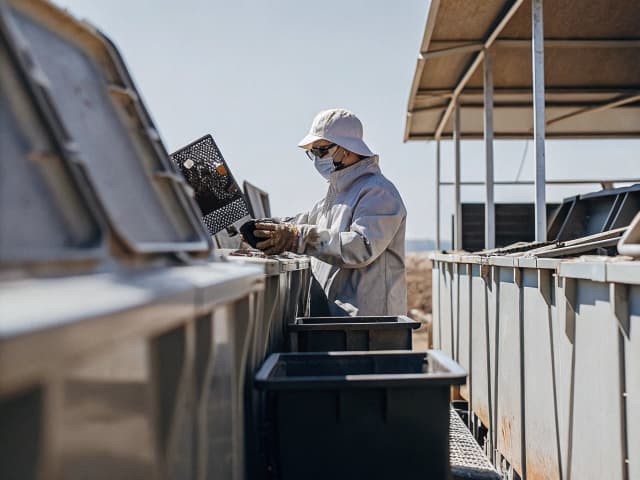
Household hazardous waste: vape pens.
Requires state evaluation of safe disposal methods for vape pens confiscated from students by schools through 2029. Authorizes hazardous waste facilities to disassemble vape pens to separate batteries and hazardous components. Prohibits vape pens from being included in household hazardous waste exchange programs.
Household hazardous waste: vape pens.

Requires state evaluation of safe disposal methods for vape pens confiscated from students by schools through 2029. Authorizes hazardous waste facilities to disassemble vape pens to separate batteries and hazardous components. Prohibits vape pens from being included in household hazardous waste exchange programs.
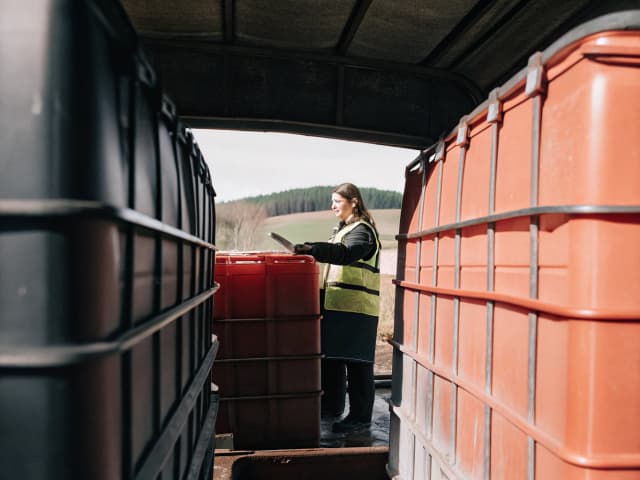
Hazardous materials management: Rural CUPA Reimbursement Account.
Expands Rural CUPA funding eligibility to all counties under 150,000 population. Establishes Rural CUPA Reimbursement Account and authorizes allocations, contingent on appropriation. Allocates up to 75%, 50%, or 35% of budgeted costs by county population. Requires a single-fee system and workload analysis to set fees that cover costs.
Hazardous materials management: Rural CUPA Reimbursement Account.

Expands Rural CUPA funding eligibility to all counties under 150,000 population. Establishes Rural CUPA Reimbursement Account and authorizes allocations, contingent on appropriation. Allocates up to 75%, 50%, or 35% of budgeted costs by county population. Requires a single-fee system and workload analysis to set fees that cover costs.
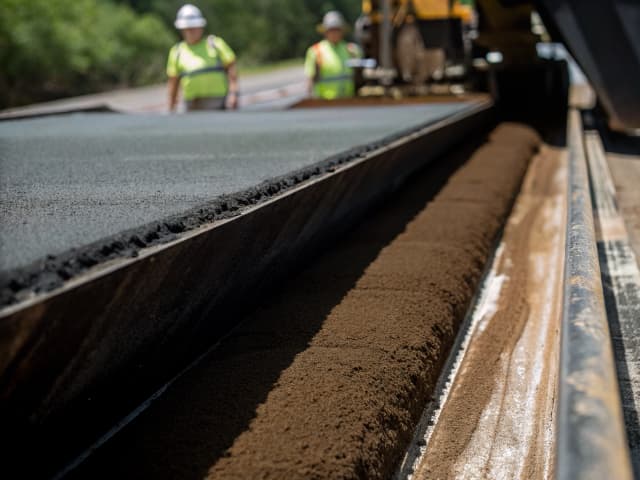
Department of Transportation and local agencies: streets and highways: recycled materials.
Requires local agencies to adopt DOT-level recycled-material specs indefinitely. Allows bidders to request why a local spec is infeasible and get an email reply. Excludes special districts and small cities/counties by population thresholds. Eliminates the advanced-technology and low-emission mandate and preserves reimbursement pathways.
Department of Transportation and local agencies: streets and highways: recycled materials.

Requires local agencies to adopt DOT-level recycled-material specs indefinitely. Allows bidders to request why a local spec is infeasible and get an email reply. Excludes special districts and small cities/counties by population thresholds. Eliminates the advanced-technology and low-emission mandate and preserves reimbursement pathways.
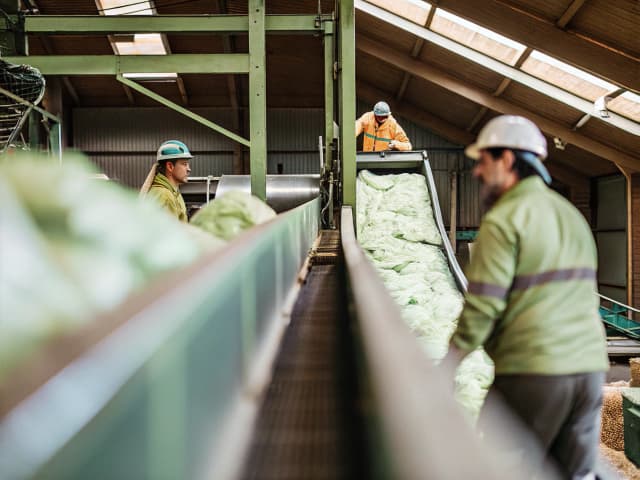
Recycling: plastic trash bags: plastic packaging and products.
Establishes new recycling requirements for plastic manufacturers to use minimum recycled content in their products by 2028. Requires manufacturers to register annually and pay up to $1,000 in fees starting July 2026. Mandates third-party certification of recycled content levels in plastic products beginning January 2029. Imposes penalties of 40 cents per pound on manufacturers who fail to meet recycled content requirements.
Recycling: plastic trash bags: plastic packaging and products.

Establishes new recycling requirements for plastic manufacturers to use minimum recycled content in their products by 2028. Requires manufacturers to register annually and pay up to $1,000 in fees starting July 2026. Mandates third-party certification of recycled content levels in plastic products beginning January 2029. Imposes penalties of 40 cents per pound on manufacturers who fail to meet recycled content requirements.
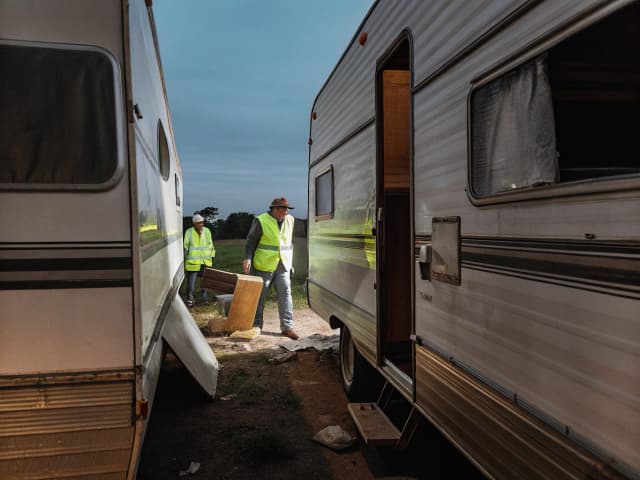
Solid waste disposal and codisposal site cleanup: illegal disposal site abatement.
Expands state waste management program to fund removal of abandoned recreational vehicles and illegal dumping enforcement. Authorizes new grants to public entities for cleaning up illegal disposal sites. Requires local agencies to provide ongoing enforcement to prevent recurring illegal dumping. Prioritizes cleanup projects in disadvantaged communities to promote environmental justice.
Solid waste disposal and codisposal site cleanup: illegal disposal site abatement.

Expands state waste management program to fund removal of abandoned recreational vehicles and illegal dumping enforcement. Authorizes new grants to public entities for cleaning up illegal disposal sites. Requires local agencies to provide ongoing enforcement to prevent recurring illegal dumping. Prioritizes cleanup projects in disadvantaged communities to promote environmental justice.

Food packaging: hazardous chemicals.
Bans harmful chemicals in food packaging including bisphenols and ortho-phthalates starting January 2027. Requires the Department of Toxic Substances Control to set safety thresholds for unintentionally added chemicals. Imposes penalties up to $5,000 for first violations and $10,000 for subsequent violations. Applies to all food containers, wrappers, and disposable food service items.
Food packaging: hazardous chemicals.

Bans harmful chemicals in food packaging including bisphenols and ortho-phthalates starting January 2027. Requires the Department of Toxic Substances Control to set safety thresholds for unintentionally added chemicals. Imposes penalties up to $5,000 for first violations and $10,000 for subsequent violations. Applies to all food containers, wrappers, and disposable food service items.